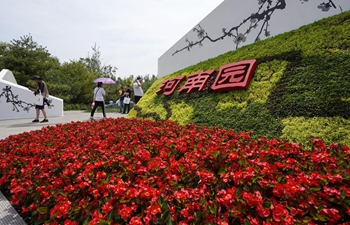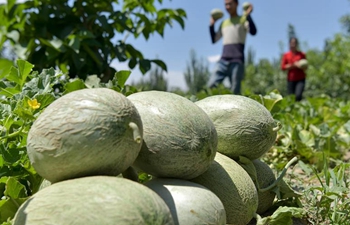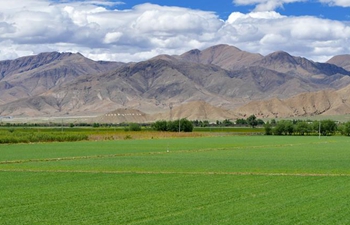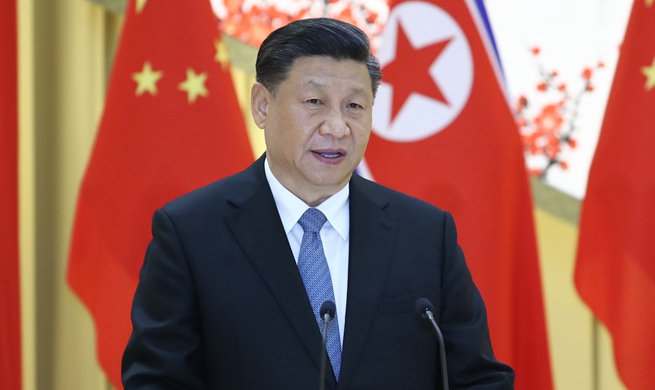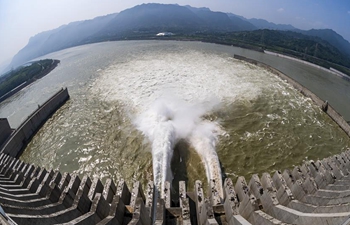NAIROBI, June 23 (Xinhua) -- A ban on the use of non-woven polypropylene shopping bags in Kenya to curb pollution is bearing fruit months after the sanction took effect.
Towns, rivers, markets and residential areas remain free of the bags that were initially disposed after single use, following an earlier ban on plastic bags that took effect in September, 2017.
Kenya announced in mid-March to ban the importation, manufacture, supply and use of non-woven polypropylene bags following increased pollution. The ban took effect on April 1.
"Due to the rising need of non-woven bags in the market, it has been noted that manufacturers of these bags are producing 'low gauge' poor quality bags which cannot be used multiple times," said Geoffrey Wahungu, director general of National Environment Management Authority (NEMA).
He noted the single usage of the bags has led to environmental consequences due to poor disposal coupled with lack of infrastructure to manage the bags.
The authority consequently directed all manufacturers, importers, users and suppliers to stop trading in the non-woven polypropylene bags.
A survey on Saturday at Muthurwa, Wakulima and Gikomba flea markets, the biggest three fresh produce and clothes outlets in Nairobi, indicated that they are largely free of the eyesore created by the non-woven bags.
At Muthurwa, the garbage site at the market that was initially colored with tens of the bags now contains only waste from farm produce that include vegetables and fruits. Things have changed for the better since the ban on non-woven polypropylene bags.
"A majority of traders here are only selling the woven shopping bags. They are a little costly but consumers are now used to," said Ann Mwiikali, a trader at the market, noting that the cheapest bag she sells goes for 30 shillings (0.3 U.S. dollars).
Non-woven bags were going for as little as 0.05 dollars, which was the same price as plastic bags, making shoppers to misuse them.
The costly woven bags have enhanced discipline among Kenyan shoppers, with most of them visiting markets and supermarkets carrying their own shopping bags from home, a thing that has curbed environmental pollution.
"It has now become a habit. I walk around with woven bags in my handbag because it does not make sense to buy a new one at 0.5 dollars each," said journalist Beatrice Wanjiku.
Anyone found selling, manufacturing or using the bags face fines of up to 40,000 dollars or prison sentences of up to four years.
But as the east African nation records success with the ban on plastic and non-woven shopping bags, the new challenge is single-use plastic bottles, which are chocking the country's water bodies and urban areas.
On Sunday, the plastic bottles sat on the edges of Nairobi River as its dirty water flowed through Mukuru slum, one of the largest sources of the plastics. More of the bottles are washed from residential areas upstream, thanks to poor disposal.
President Uhuru Kenyatta last month announced a ban on single-use plastics in beaches, national parks, forests and conservation areas. The ban he said will take effect on June 5, 2020.
"Kenya has remained a campaigner for a sustainable environment. In light of this commitment, two years ago, we banned the use, manufacture and sale of environmentally harmful plastics, polythene bags and packaging materials. We are also banning single-use plastics in all our protected areas," the president said.

